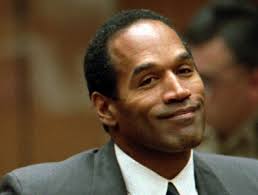Ok, I hadn't really mentioned it here, but all this week, I have been in jury duty at the county courthouse. I was selected as a juror in an armed robbery trial. There was lots of evidence presented and testimony and all that and I am not going to go into the specifics of it. Suffice to say that we ended the trial today with a verdict of Not Guilty. Now, that being said, everyone of us jurors thought that the defendant was in fact Guilty. We rendered the verdict due to a lack of evidence by the state. They didn't have the money from the robbery, they didn't have a bullet that was fired during the event, they only had circumstantial evidence at best and the testimony of a drug dealer and accomplice placing the defendant as the perpetrator of the robbery.
We found out after the verdict that the defendant is being sent for another armed robbery trial in another county. They were needing to secure some of the evidence in this trail for use in that one. I can only imagine that meant the same gun was used in both.
So, I know he is guilty of the crime we acquitted him of. I know that the verdict we gave was the correct one with the evidence we were given and that we did our job as jurors. Why do I feel so bad about it? Why can't I stop thinking about everything? I know that man is in custody and will go to another trial, but I can't help feeling that I have made my town a little less safe by letting him go free.
We found out after the verdict that the defendant is being sent for another armed robbery trial in another county. They were needing to secure some of the evidence in this trail for use in that one. I can only imagine that meant the same gun was used in both.
So, I know he is guilty of the crime we acquitted him of. I know that the verdict we gave was the correct one with the evidence we were given and that we did our job as jurors. Why do I feel so bad about it? Why can't I stop thinking about everything? I know that man is in custody and will go to another trial, but I can't help feeling that I have made my town a little less safe by letting him go free.


